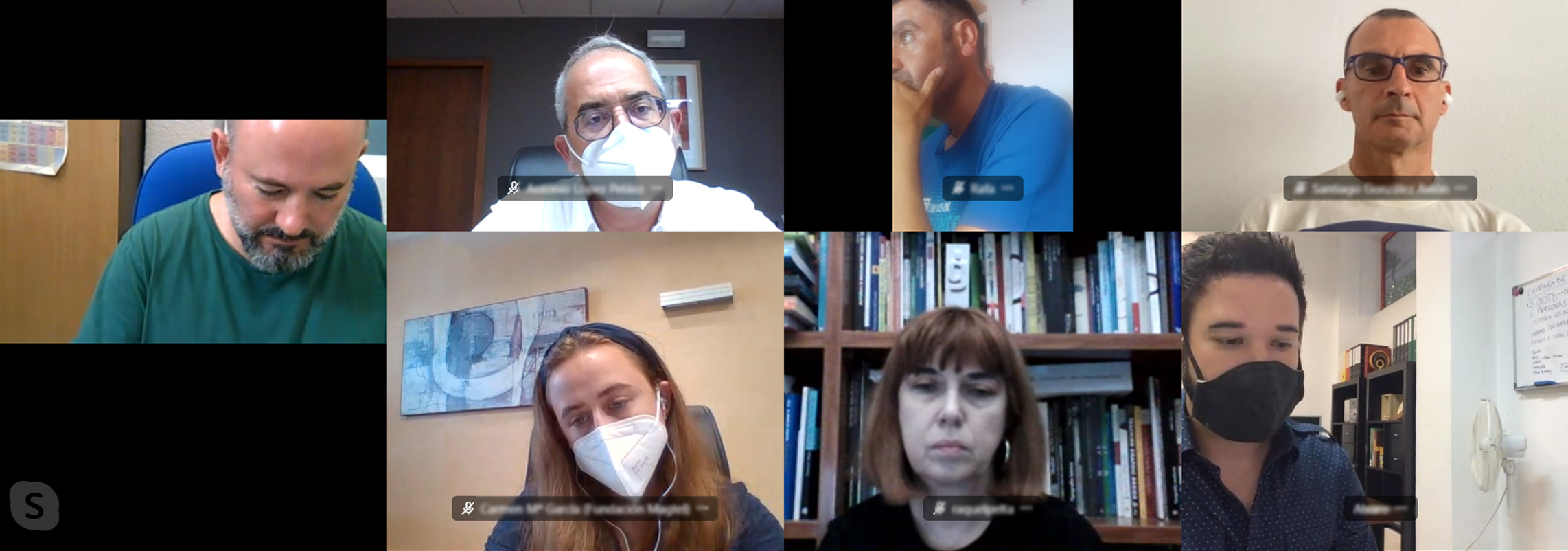The Magtel Foundation hosted a participatory evaluation seminar on Tuesday last
Funded by the European Union, the Community initiative seeks to improve the quality and effectiveness of humanitarian action
The Magtel Foundation is one of the partners committed to support the Erasmus+ project “KA2- Cooperation for Innovation and the Exchange of Good Practices” (Innovation in Humanitarian Response: InovHumRe 2020-1-PT01-KA203-078796). Funded by the European Union, this initiative aims to improve the quality and effectiveness of humanitarian action by improving training for students and professionals within the field. To achieve this, a curricular unit on the assessment of humanitarian aid and the development of learning tools will be launched.
Since NGOs with experience in humanitarian response will jointly create the structure and content of the curricular unit—including the learning tools and textbook—the results will be based on work in the field and geared towards the learning needs of both students and humanitarian professionals, i.e., NGOs.
The partnership between universities and non-governmental organisations working to promote the social inclusion of refugees and migrants ensures the involvement of stakeholders in the development of materials. This will have an impact on the requirements for successful inclusion of a group that faces serious risk of segregation and discrimination.
The participatory evaluation seminar was hosted by the Magtel Foundation at their Cordoba headquarters last Tuesday. This activity was organised within the framework of the Erasmus+ project (KA2) and featured Rocío Ciero, the coordinator of the seminar and the foundation’s project technician, as a speaker. Antonio Lopez Pelaez, professor of Social Work and Social Services at UNED (Spanish National University of Distance Education), presented the project alongside Ciero, and together they outlined the different NGO experiences in participatory evaluation.
This seminar, along with the session organised for Thursday this week, serves as a working session for the Spanish team and Spanish social organisations, allowing them to “test the water” and establish a direct conversation with NGOs working in the field of emergency humanitarian aid and/or care for refugees.
Yesterday, Eduardo Garcia Carmona, a representative of the Prolibertas Foundation in Cordoba; Santiago Gonzalez Avión, director of the Asociación Diversidades [Diversity Association], and Alvaro Morcillo Soto, general coordinator of the Asociación de Apoyo al Pueblo Sirio [Association for Support to the Syrian People (AAPS), contributed their views and experiences to the participatory evaluation.
Tomorrow, Thursday 16 September, Raquel Pelta, lecturer in design research and history at the University of Barcelona, will also appear. She will focus on participatory evaluation from the perspective of co-design. Francisco Javier Garcia Castilla, lecturer in Social Work at the National University of Distance Education (UNED), and Angel de Juanas Oliva, lecturer in the Department of Education Theory and Social Pedagogy within the Faculty of Education at UNED, will also explore online methodologies for participatory evaluation.
To finish off, there will be a round table discussion in which the contributions to the project, from the Spanish experience, will be shared by the whole team.
The seminars held in Cordoba on 14 and 16 September were made possible thanks to the participation of 3 Spanish NGDOs. The results of these discussions will be presented to other European project partners in Ankara (Turkey) on 22 September by the representatives of Turkey, Portugal, Colombia and Brazil.

